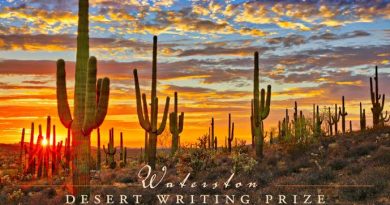Navigating Online Research for Creative Writing Projects
Are you one of those looking for easier ways to conduct research for creative writing projects? If yes, then you are not alone.
Research for creative writing projects can be daunting. Fortunately, online resources have made almost any information available. This applies to both cutting-edge scientific research and old historical data. The problem is that only the bravest and most persistent can conquer this digital sea.
With each publication on the network, it becomes more difficult to see the line between credible information and baseless opinions.
Read: 5 Tips for Publishing Your First eBook
Sometimes it’s difficult to figure out what exactly you’re working with: an assumption, an author’s idea, or a proven fact.
Luckily, there are tools and services available to help with academic papers, such as Paperwriter, an APA paper writing service that assists in organizing content and citing sources appropriately.
Research is the starting point of your creative project. How well you research the topic will determine its success. If you are not ready to let everything take its course, trust this article to teach you how to research for creative writing projects.
Types of Creative Writing:
- Fiction:
- Novel: A sprawling canvas that allows authors to weave intricate plots and develop multidimensional characters, the novel is a literary form of substantial length, offering immersive storytelling experiences.
- Short Story: The art of brevity and precision, short stories distill narratives into a concise form, often capturing a singular moment or theme with impactful storytelling.
- Flash Fiction: An exercise in conciseness, flash fiction challenges writers to encapsulate complete narratives within a minimal word count, honing the skill of economical storytelling.
- Poetry:
- Haiku: Rooted in Japanese tradition, haikus are three-line poems with a 5-7-5 syllable structure, inviting writers to distill powerful imagery and emotions into a minimalist form.
- Free Verse: Liberated from the constraints of rhyme and meter, free verse poetry provides a canvas for free-flowing expression and experimentation with form.
- Sonnet: A structured 14-line poem with specific rhyme schemes, sonnets often explore themes of love, beauty, and introspection.
- Drama:
- Playwriting: The art of crafting scripts for the stage, playwriting involves creating dialogues, stage directions, and characters that come to life in live performances.
- Screenwriting: Tailored for the screen, screenwriting emphasizes visual storytelling, pacing, and creating a dynamic experience for the audience.
- Non-Fiction:
- Essay: Essays are thoughtful and reflective compositions that explore a particular topic or issue, providing insight and analysis with a structured approach.
- Memoir: Personal narratives that delve into significant life events, memoirs offer a glimpse into the author’s experiences, often combining introspection and storytelling.
- Journalism: Grounded in factual reporting, journalism involves objective coverage of news and events, adhering to principles of accuracy and impartiality.
Types of Research for Creative Writing Projects:
- Historical Research: Essential for projects set in specific historical periods, historical research ensures accuracy in depicting settings, events, and cultural nuances, providing a solid foundation for authenticity.
- Scientific Research: Crucial for science fiction or projects involving scientific elements, scientific research forms the bedrock for constructing plausible and immersive narratives in speculative genres.
- Cultural Research: Cultural research is vital for crafting authentic representations of diverse cultures and backgrounds, fostering inclusivity avoiding stereotypes, and ensuring a respectful portrayal.
- Geographical Research: Accurate and vivid depictions of settings are crucial for immersion. Geographical research contributes to the overall atmosphere, credibility, and sense of place within the narrative.
Stages of Research for Creative Writing Projects
Writing is a personal activity for you. You will have your own research process and each genre will have its specific research requirements. However, most creative writing projects generally go through three stages of background research.
- Perform General Research
When you start a project, you may have a general idea of the area you’re interested in, but not a specific aspect to explore. Let’s say you’re interested in the role of women during World War II, which is quite broad. Conducting general research allows you to identify the exact aspects to focus on.
Here are some techniques for conducting general research:
- Conduct a keyword search at your local library.
- Read all available books on the topic.
- Interview experienced people if you have access to them.
- Watch documentaries, and visit museums. Look for any piece of data you can get your hands on.
- Focus on Specific Research:
Once you have narrowed down your topic, it’s time for focused research. For example, let’s say you decide to focus on the 1942 Dieppe Raid. Here are some methods to guide your focused research:
- Read all available books on the topic, including personal accounts and compilations.
- Read archival news articles about the event.
- Explore national and regional archives, both online and, if possible, in person.
- Double-Checking Details:
As you start to write, you may need help in developing authentic scenes and providing accurate details. It’s generally best to keep writing whenever inspiration strikes but mark any details that you need to double-check and do the research later.
The internet is a valuable resource for specific details:
- Use Google Maps to explore locations and get a sense of the surroundings. However, if your book is set in a different period, you may need to dig deeper. For example, the National Library of Scotland offers WWI trench maps online, and other cities and regions provide historical maps.
- For information on clothing, technology, and culture, there are many websites dedicated to specific periods or cultural aspects.
Navigating Online Resources for Research

Smart Usage of Search Engines
Refining your research through advanced search techniques can greatly enhance its precision. Operators like AND, OR, and NOT enable researchers to streamline their results and focus on relevant data. For example, if you are studying the effects of caffeine on sleep, using “caffeine AND sleep” will yield results that specifically discuss both aspects.
Conversely, using “caffeine NOT tea” will provide information about caffeine without any references to tea. Additionally, employing phrase searching, where you enclose search terms in quotes, ensures the search engine considers the exact phrase instead of treating each word separately.
Although search engines offer a wealth of information, it is essential to critically evaluate the search results. Outdated, biased, or false information is not uncommon.
Factors such as publication date, author credentials, and publishing platform reputation should always be considered. Additionally, with the proliferation of fake news and clickbait-focused content farms.
Evaluating Source Credibility
Access to a wide range of academic databases and journals has been democratized in the digital realm. These platforms host a variety of articles, studies, and papers that undergo rigorous peer review, ensuring credibility. Knowing where to search becomes crucial with the abundance of platforms.
However, not all resources are freely available in the digital age. Open Access and Paid Subscriptions in academic publishing have sparked debate. Open Access journals provide free content to the public, ensuring wide dissemination of research.
Paid Subscriptions, although sometimes restrictive in access, often include a curated selection of high-quality papers with rigorous peer review.
It’s worth noting that many university libraries offer public access to a range of paid journals, bridging the gap between accessibility and quality for students or independent researchers without institutional access.
Advice! You should be prepared to go further in your research. It’s about accessing materials that are available in your region. To cope with the task, you will need a safe Tor browser and a VPN. Although the security of the Tor browser may be questionable, it is truly a better alternative to traditional browsers that spy on and restrict us all.
Utilizing Online Libraries and Databases
You will find millions of titles in online libraries, offering search functionalities to quickly locate specific sections or chapters, eliminating the often tedious task of manual searching. Moreover, online libraries grant access to rare or out-of-print books, ensuring that no resource remains out of reach.
If you want to experience the power of the digital age, just open Project Gutenberg or similar platforms. From cult classics to personal works of art, you can find over 60,000 eBooks in just one place. For those who prefer auditory learning or seek a break from screen time, LibriVox offers a vast collection of audiobooks read by volunteers from around the globe.
Engaging with Online Communities
Online communities, forums, and social media groups related to writing can be valuable resources. Engage with fellow writers, seek advice, and share experiences to enrich your understanding of the craft.
How to Begin a Creative Writing Project:
#1 Find Your Inspiration
Finding inspiration is a multifaceted process that involves tapping into the rich reservoir of life experiences, observations, and even the creative works of others. Immerse yourself in diverse stimuli—books, art, nature, conversations, or personal reflections. Inspiration often strikes unexpectedly, and by cultivating an open mind, you invite the muse to illuminate your creative path.
#2 Define Your Purpose
Before setting pen to paper or fingers to keyboard, take a moment to articulate the purpose of your creative endeavor. What do you want to communicate? Is it a personal exploration, a commentary on societal issues, or a fantastical escape? Clearly defining your purpose provides a guiding light throughout the project, anchoring your creativity in intentionality.
#3 Create a Writing Schedule
Consistency is the backbone of any creative project. Establishing a writing schedule not only nurtures discipline but also creates a dedicated space for your imagination to flourish. Whether it’s a daily writing session, weekend retreats, or specific project milestones, a schedule transforms writing from a sporadic activity into a habitual practice.
#4 Start Writing
The blank page can be intimidating, but the key is to overcome the initial inertia and start writing. In the initial draft, don’t succumb to the pressure of perfection. Allow your ideas to flow organically. This is the stage where creativity thrives unhindered, and every word you write becomes a building block for the narrative you’re crafting.
#5 Revise and Refine
Revision is a fundamental part of the creative writing process. After the initial draft, revisit your work with a critical eye. Refine the language, structure, and pacing. Consider the feedback you’ve received and assess how it aligns with your vision. The revision stage is where your narrative begins to take its final shape, each edit enhancing the clarity and impact of your storytelling.
#6. Embrace Iteration
Creative projects are seldom a linear progression from start to finish. Embrace the iterative nature of the process. It’s okay to revisit earlier sections, tweak character arcs, or experiment with narrative structures. Iteration is not a sign of indecision but an acknowledgment that creativity evolves, and each refinement brings your project closer to its ultimate expression.
#7 Build Atmospheric Settings
Settings serve as the backdrop for your narrative, influencing the mood and tone of your story. Whether it’s a bustling city, a quaint village, or an otherworldly realm, build settings that enhance the atmosphere of your story. Use vivid descriptions to transport readers into the world you’ve envisioned, creating a sensory experience that lingers in their minds.
#8 Experiment with Style and Tone
Creative writing is not only about what you say but how you say it. Experiment with different writing styles and tones to find the most authentic voice for your project. Whether it’s lyrical and poetic or straightforward and pragmatic, the stylistic choices you make contribute to the overall impact of your narrative.
#9 Read Widely and Analyze
Reading is a wellspring of inspiration and education for a writer. Explore diverse genres and authors, analyzing their writing styles, character development, and narrative structures. Understand what captivates you as a reader and consider how those elements can be integrated into your own work.
#10 Embrace Writer’s Block as a Challenge
Writer’s block is an inevitable part of the creative process. Instead of viewing it as a roadblock, see it as a challenge to overcome. Take breaks, explore other creative outlets, or simply allow your mind to wander. Often, the solution to writer’s block emerges when you least expect it.
Final thoughts on Navigating Online Research for Creative Writing Projects
While reading the article, you may have already realized the importance of creative writing and the proper approach to writing articles.
The world expects creative writing projects and will highly appreciate quality work. However, behind a good project, there is always deep research work.
The more data you collect and the better you research the topic, the more objective you will be.
In a world of great competition, the only way to take a leading position is to create the best text in all respects: style, content, form, and depth.
To do this, you need to continue to develop and explore the Internet. This task cannot be called simple, but with this article, you have a valuable guide to the vast expanses of the Internet and the craft of writing.




